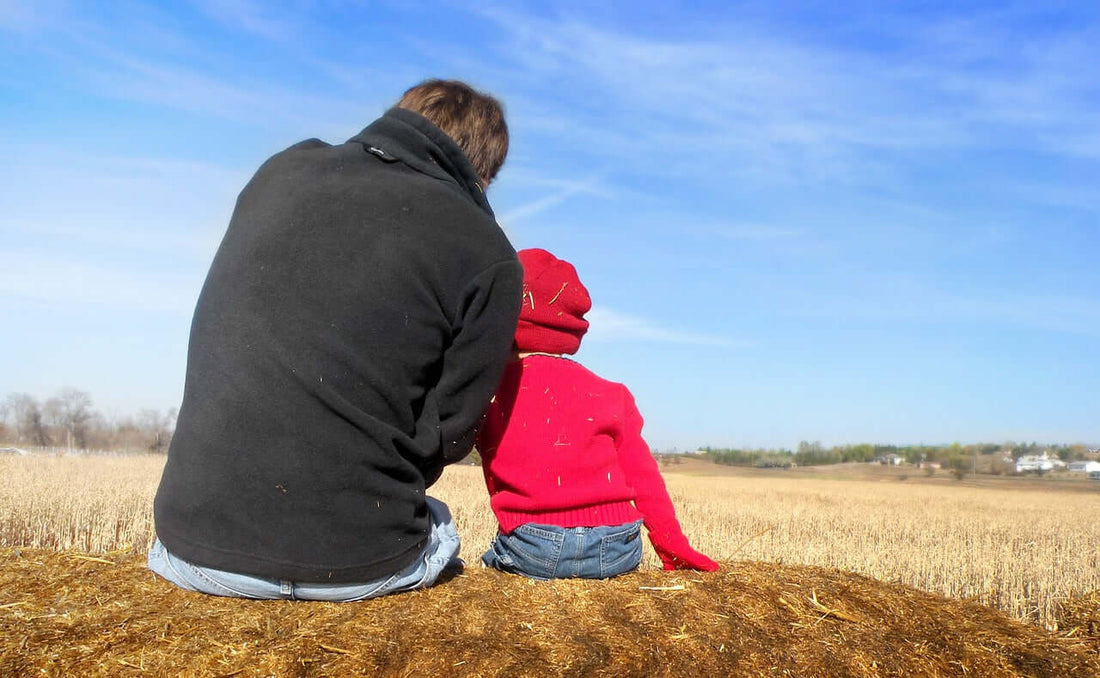
Nurturing Nature's Allies: The Importance of Connecting Children with the Natural World from A Parent's Perspective
Share
As a parent, I believe fostering a connection between children and the natural world is work worth doing. When we introduce our children to nature from an early age, we provide them with a profound opportunity to develop what could become a lifelong bond with the natural environment. This connection not only benefits nature itself but also holds tremendous potential for enhancing our children's mental well-being.

One simple way to embark on this journey is by taking family walks through woodlands, where the wonders of nature unfold seasonally before our children's eyes. These simple walks might transform our little ones into nature detectives, eager to explore the intricate ecosystems that thrive within the foliage or - at the very least - give them an appreciation of nature. I vividly recall some of the simplest moments spent with my three children when - for example - I might overturn a piece of deadwood to witness beetles scurrying away, unveiling the hidden world of insects and invertebrates guarantees an excited scream (initially) and then closer inspection though eyes wide open. These tiny creatures lurking in our precious and overworked topsoil, seemingly insignificant at first glance, form the foundation of a delicate ecological balance. They serve as a vital source of food and protein for other animals, ensuring their growth and vitality. Without these tiny insects, our planet becomes more fragile and hostile. It's we parents who teach our kids to run and scream from spiders and insects - if we can fight our own fears for a moment or two, we might teach our fledglings a lesson that carries them through life, that we are all (whether we like it or not) interconnected.

In recent years, the importance of these minuscule beings to biodiversity has become increasingly apparent. Alarming declines in invertebrate species have raised concerns, prompting us to appreciate their role in sustaining the natural world. Sharing this knowledge with our youngsters allows them to grasp the significance of wiggly worms and other creatures from - for one example - a birds-eye perspective. Ask them to picture in their mind a blackbird - hopping on the lawn - in search of soft, natural protein to nourish her offspring, enabling them to grow into strong, healthy fledglings capable of sustaining themselves. Through such storytelling, we ignite our children's imagination, instilling in them a sense of wonder and curiosity about the intricate workings of nature. Now explain how hard that act becomes in drought situations when the ground is hard, and worms can't be pulled and fed to their young... what can the bird do? Offering a little supplementary bird food and a few mealworms in the garden or backyard might help our children connect the dots and begin to understand the role we can play in helping provide food, shelter, and a safe space to breed - making space for nature in our own lives seems, to me, to be time well spent.

Moreover, explaining how certain insects have evolved to be less attractive as prey by adopting appearances like more fearsome creatures (mimicry) can spark children's imagination. Take the humble hoverfly, masquerading as a wasp to prevent itself from becoming easy prey. This information opens an entire world of fascination and duplicity; this revelation ignites the imaginative spirit within our children, encouraging them to envision a world where nature employs various strategies for survival and adaptation (just like we humans). By nurturing their connection with nature, we can only hope that our youngsters will remain devoted enough to become future stewards of the environment, working towards raising the next generation of nature detectives.

Beyond the immediate benefits to nature itself, connecting children with the natural world has profound implications for their mental health. In our fast-paced, technology-driven society, where virtual realities often dominate, it is crucial to provide our children with a counterbalance - an opportunity to unplug and immerse themselves in the tranquillity and splendour of nature. Forget virtual reality for a moment, why not go and chase that butterfly or follow that animal track and channel your inner Bear Grylls for an afternoon? Studies have shown that spending time in nature can reduce stress, anxiety, and attention fatigue while boosting creativity, cognitive function, and overall well-being. Now there's a case for putting nature studies at the heart of the school curriculum. By fostering a deep appreciation for the natural world, we equip our children with a lifelong source of solace, inspiration, and emotional resilience.

In conclusion, with my parent's hat on, I firmly believe in the significance of nurturing our children's connection with the natural world. By introducing them to the wonders of nature, we provide them with a powerful foundation for environmental stewardship while simultaneously enriching their mental well-being. Let us embark on this journey together, guiding our children through woodlands, meadows, and streams, where they can unfold their wings as nature detectives and forge an unbreakable bond with the world that sustains us all.

Good luck and best wishes.
Simon
